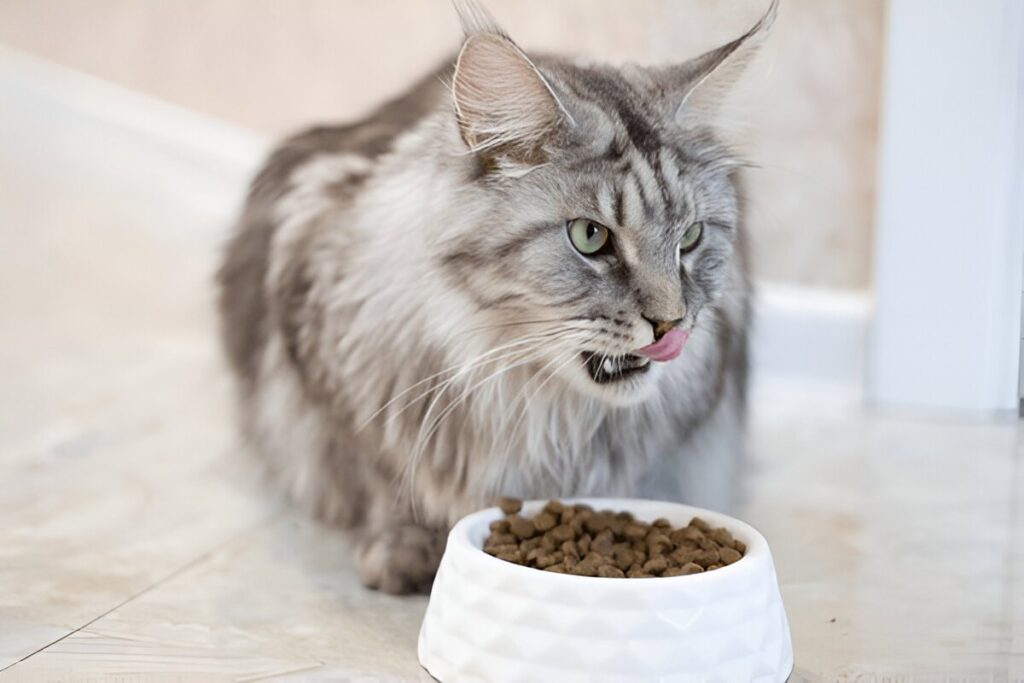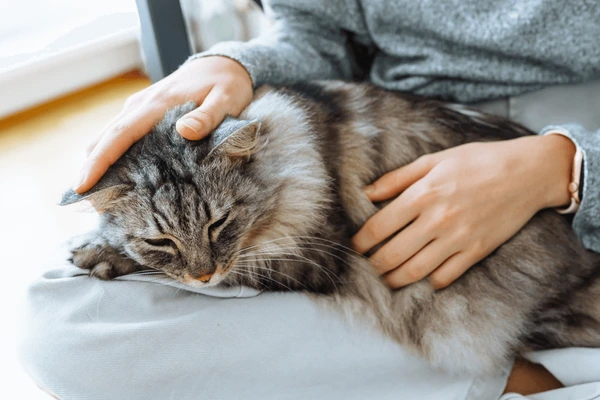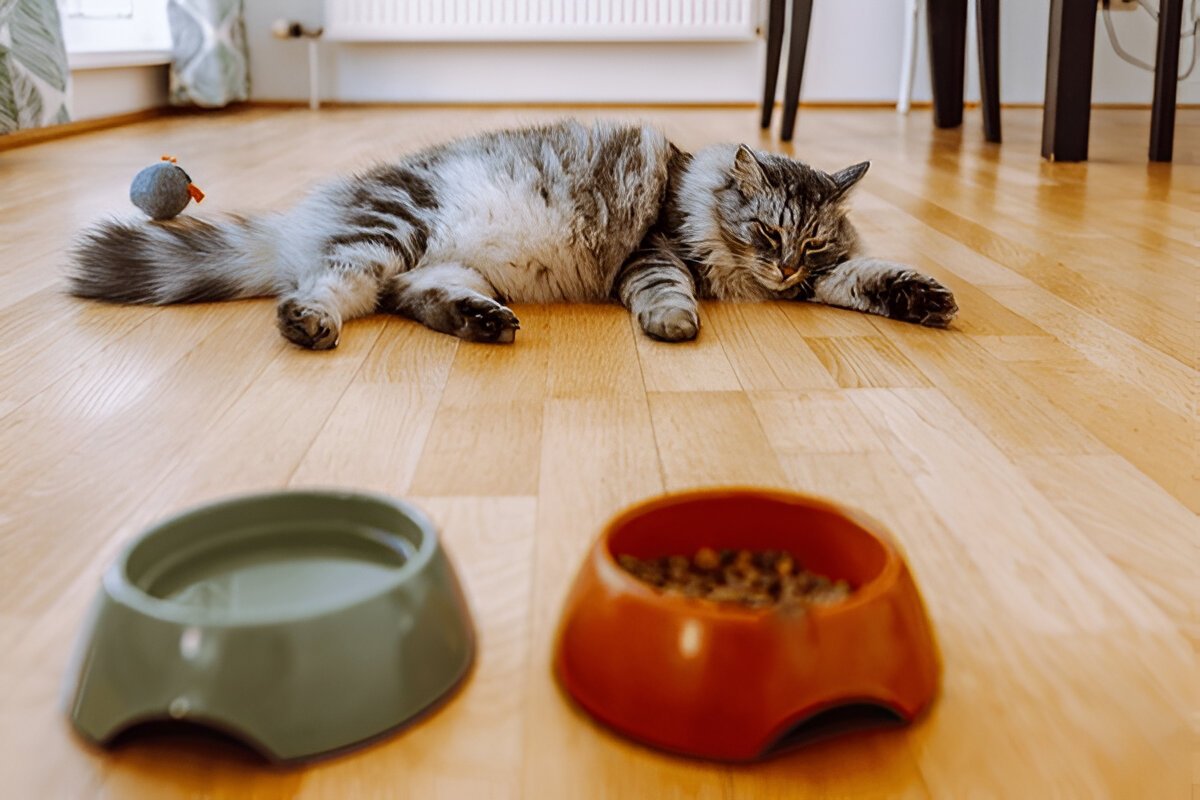Cats are tough creatures, but when it comes to food, their bodies are limited. Sure, there are stories of cats who have survived weeks without eating, but these instances are usually exceptions, and cats probably scavenged a few morsels of scraps or small prey in between.
But what if your cat doesn’t eat? It has huge ramifications, and it can happen quickly.
Just suppose your cat wrinkles its nose at its food and leaves. You may say, “It is only being fussy”, yet missing meals can be a major warning sign to our feline companions.
Although a cat can physically survive up to two weeks without food, provided they have water, the chances of serious complications, many of which are deadly, increase exponentially after only 2 -3 days.
In contrast to dogs, cats cannot safely go without food for extended periods of time- hours can pass, and fasting can easily become unsafe, life-threatening.
Why Is Food So Important for Cats?
Cats are obligate carnivores, which implies that their physiology requires that the vital substances, in particular, protein and some amino acids, can be obtained only through animal food.
Cats cannot live very long on body fat like some other animals. Their livers are not designed to process the quick breakdown of fats, so frequent meals are essential to the detox process and to general well-being[1].
Why Do Cats Stop Eating?
Cats may refuse food for a variety of reasons, including:
- Illness (dental pain, infections, kidney problems)
- Stress or changes at home (new pet, moving, loud noises)
- Dislike of food (flavor, texture, or spoiled food)
- Side effects from medication
[Source]
Regardless of the reason, any cat that stops eating for more than 24 hours should be evaluated by a veterinarian.
How Long Can a Cat Survive Without Food?
| Cat’s Condition | Maximum Time Without Food | Risks and Outcomes |
| Healthy adult | 1–2 weeks (with water) | Severe health decline after 2–3 days |
| Kitten, senior, ill cat | Less than 24 hours | Rapid deterioration, medical emergency |
| Without water | 2–3 days | Dehydration, organ failure, death |
Note: These are maximums; severe, often irreversible damage can occur much sooner[3].

What Happens If a Cat Stops Eating?
Short-Term
- The majority of healthy adult cats can technically survive without eating for up to 24 hours, although that is not safe or advisable.
- A single skipped meal is an indication of disease or stress, particularly among kittens, older cats, or unwell cats.
- The body begins to burn stored fat as energy, but this cannot be effectively processed by the liver.
Medium-Term
- After 48–72 hours, the risk of hepatic lipidosis (fatty liver disease) rises sharply.
- The fat overwhelms the liver, causing liver failure- a fatal emergency that is specific to cats.
- Vomiting, lethargy, jaundice (yellowing of eyes/gums), and rapid weight loss may be observed.
Long-Term (More than 3 Days)
- Extreme muscle wasting, dehydration, electrolyte disorders, and suppression of the immune system may take place.
- Without prompt treatment of the cat, organ failure and death can occur.
Signs Your Cat Isn’t Eating Enough
Research indicates that if your cat is not getting enough food would be related to signs of physical appearance and behavioral changes that would signify underfeeding or disease.
The major symptoms are:
- More vocalization or begging
- Dullness or anxiety
- Sudden weight loss or muscle tissue atrophy
- Dull, dry coat, loss of hair;
- Vomiting, diarrhea, or jaundice
Note: If you observe any of these, get in touch with your veterinarian as soon as possible.
Also read:
Black Maine Coon Cats
The Blue Tortie Maine Coon
How Long Do Maine Coon Cats Live?

Why Fasting Is Dangerous for Cats
Hepatic Lipidosis: In a case where a cat fails to eat, the body will use fat as a source of energy. The liver of the cat is not able to metabolize fat in large quantities, so there is a risk of excessive fat development and liver failure.
Dehydration: Cats become dehydrated very easily and can develop seizures and cardiac issues due to the lack of food and water.
Immune Suppression: Extended fasting suppresses the immune system, increasing the susceptibility to infections.
What Should You Do If Your Cat Stops Eating?
1. Act Fast: Cats that go 24 hours without eating should be called to the vet- faster if it is a kitten, senior, or has medical conditions.
2. Observation of Water Consumption: Make sure that your cat is taking water; dehydration is even more life-threatening.
3. Skip Home Fasting: Never intentionally fast your cat to lose weight or detox- this is dangerous and can be lethal.
4. Diet Transition: In case of a change in foods, make the transition gradually to avoid food rejection.
5. Seek Professional Help: When your cat has not eaten in 2 or 3 days, it means it is a medical emergency. After this, the danger of permanent liver injury and fatality rises sharply.
Final Thoughts
Although a cat can physically survive up to two weeks without food, provided they have water, the chances of serious complications, many of which are deadly, increase exponentially after only 2 -3 days.
A loss of appetite in your cat should always be taken seriously, and veterinary help should be sought as soon as possible to ensure that your feline friend stays healthy and safe.
References:
1. https://pmc.ncbi.nlm.nih.gov/articles/PMC7415653/
2. https://www.frontiersin.org/journals/animal-science/articles/10.3389/fanim.2022.873924/full
3. https://www.purina.co.uk/articles/cats/feeding/guides/how-long-can-cats-go-without-food
4. https://www.vet.cornell.edu/departments/cornell-feline-health-center/health-information/feline-health-topics/how-often-should-you-feed-your-cat
5. https://vetmed.illinois.edu/pet-health-columns/hepatic-lipidosis-when-cats-dont-eat/

